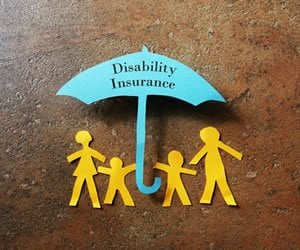Last Updated on June 26, 2022 by Laura Turner
The thrill and responsibility of holding someone’s life in your hands, the ability to act under pressure, and the satisfaction of doing good in the world—these are among the qualities that attract people to the medical profession. In a culture that’s quickly diminishing the value of established professions, there’s still a universal appeal to becoming a doctor.This doesn’t mean seeking a career in medicine is without its obstacles. The importance of a thorough education—at least four graduate years—cannot be understated. Add in the time it takes to complete an internship and a residency, and it’s easy to see why a medical path can be too daunting for many. On average, it takes about 11 years for a medical student to become an independent doctor. If students begin medical school in their 20s, they won’t begin to see patients as a physician until they’re in their 30s. Add to that an average price tag of $166,000 in student loans for medical school, and even the most gung-ho medical students begin to balk. Suffice it to say, a career in the medical field is a huge time and financial investment.
An investment as time-consuming and lifestyle-defining as attaining a career in medicine deserves financial protection, which is why it’s important for young and aspiring doctors to acquire disability insurance.
A disability is an injury, illness, or affliction that prevents someone from performing occupational duties, which for a doctor—who knows the fragility of the human body and its tendency toward sickness—would be catastrophic. Disability insurance provides financial cushion in the event of a debilitating injury or illness. In most states, worker’s compensation and social security benefits will cover partial pay, but it’s hardly ever enough. Workers’ comp, in particular, will only cover injuries incurred on the job.
Additionally, the medical profession is often intrinsic with a doctor’s identity, so the idea of being unable to perform duties may be far removed from their perception. This sort of confidence is ideal in a young medical candidate, but it’s a problematic attitude if the doctor isn’t insured. Disability insurance will allow young and aspiring doctors to consistently perform well, mentally uninhibited by fears of financial ruin.
What type of disability insurance should a young doctor acquire?
The average disability coverage provided by the government and employer (in this case: social security, workers’ comp) will cover $3,000 of monthly income. After taxes, this works out to be about $2,450. Now, think about what your monthly expenses are, including mortgage/rent, car payments, utilities, food, etc. Suddenly, that $2,450 vanishes pretty fast, especially if you’re still paying off those pricey student loans. Unless you receive a group policy through your employer, you will need to look for an individual disability insurance policy to bridge whatever lost income you incur.
The most common type of individual disability insurance is called “own-occupation” insurance. Under this plan, the person will be insurable if they are unable to perform the duties and responsibilities of their occupation during the period of disablement. This does not prevent or penalize the disabled if they seek work elsewhere. This is the type of insurance that young doctors can and should acquire. Own-occupation insurance also makes sense if the potential medical professional has a highly specialized skill.
For example, if you’re heart surgeon and for whatever reason—illness, injury, or even something as seemingly minor as carpel tunnel syndrome—you can’t perform your duties, then you will qualify as disabled. But because you utilize your specialized skill in such a sensitive environment, this disablement doesn’t necessary mean that you’re unfit to work elsewhere. Under an own-occupation plan, the medical professional suffering disablement will be able to collect disability benefits and still work in another occupation. Working while collecting disability insurance can also mean more than replacing lost income—your pride and identity becomes so tied up with the profession that working despite disablement prevents feelings of inadequacy and failure. An own-occupation plan can be good for your mental health.
Prospective doctors should look into specific plans that cover those in the medical field. It’s important to not only define your occupation as physician, but—as in the case of the heart surgeon—define it as your specialty.
Because medical school is such an immense investment of time and money, all young doctors should invest in own occupation disability insurance. It’s not just protection for that investment, but it provides peace of mind, which is vital when your attention should be focused on healing the sick, repairing the injured and saving lives.
About the Author: Richard Reich is a nationally licensed life insurance and disability insurance broker who has more than 25 years of experience in the industry. You can learn more at www.protectyourincome.com.

